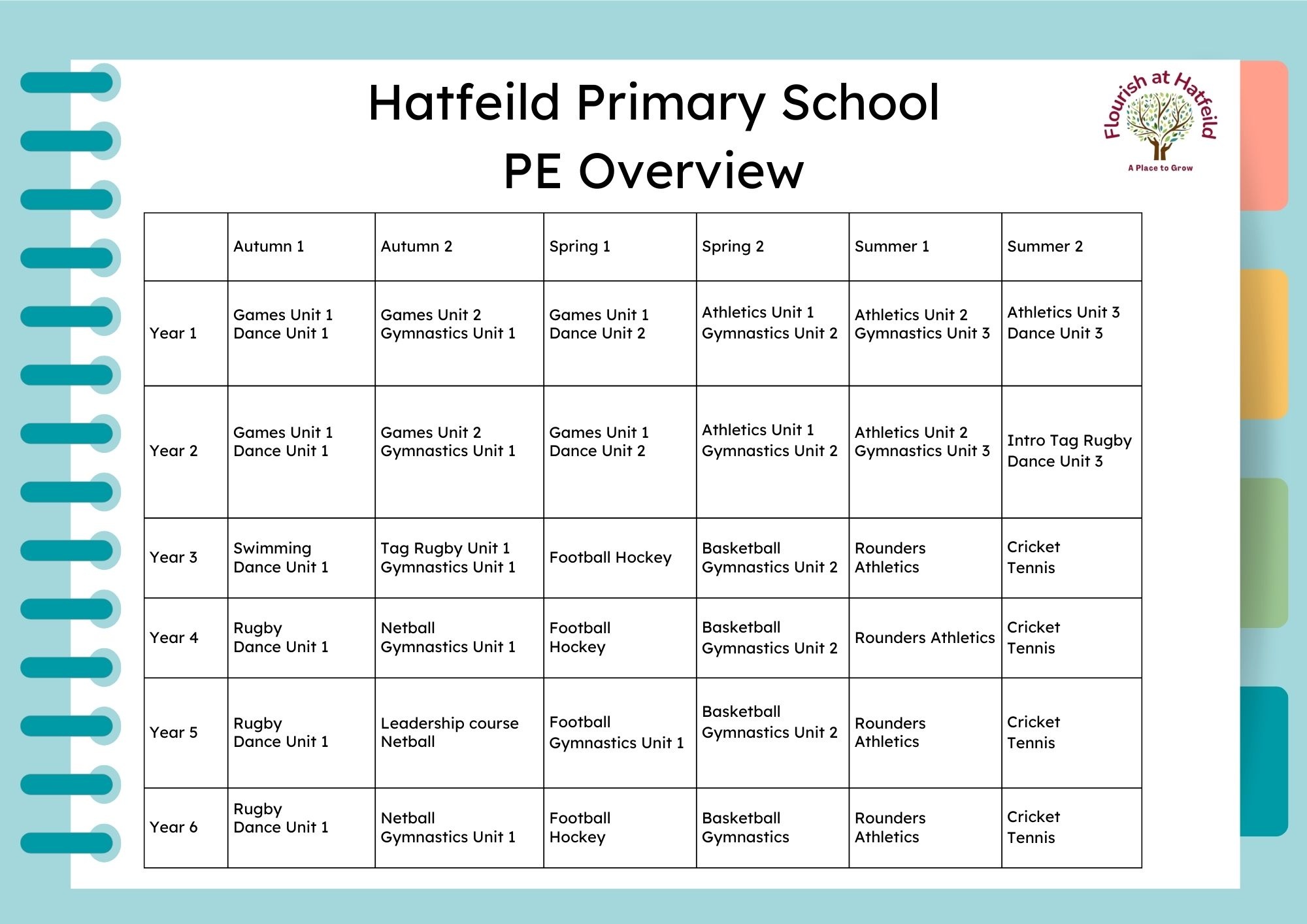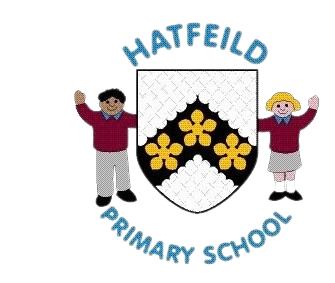Physical Education
Intent
At Hatfeild, we aim to provide each pupil with access to extensive and high-quality sporting activities which are accessible and challenging. Hatfeild seeks to provide a varied and interesting Physical Education curriculum which engages and excites staff and pupils alike, while teaching them fundamental and transferable skills to succeed in life. We see PE as a vital part of education in underpinning positive mental health and well-being of all involved. We believe that the opportunities we provide help to promote healthy choices and being physically active as a way of life. We believe that tactical and mental understanding of sports works hand in hand with physical skill. Through teaching PE, we will develop values such as teamwork, fairness and respect, as well as provide them with opportunities to take part in competitive sport.

Implementation
We follow the Merton School Sports Partnership scheme which helps us to plan our PE units so that they build upon the prior learning of the children. While there are opportunities for children of all abilities to develop their skills, knowledge and understanding in each activity area, there is planned progression built into the scheme of work, so that the children are increasingly challenged as they move up through school. The curriculum planning in PE (2 hours per week in line with national guidance) is carried out in three phases.
The long-term plan maps out the PE activities covered in each term during each key stage. The PE subject leader works this out in conjunction with teaching colleagues in each year group, and provides units of work which outline specific learning objectives for each lesson and give details of how the lessons are to be taught. Throughout the course of the year, each class teacher has an opportunity to liaise with a specialised coach to obtain further professional development in an area of sport, which is then fed back to other members of staff to ensure continuous adaptation and improvement to our teaching as a whole. The PE subject leader also ensures that learning walks take place half-termly to ensure that the schemes of work are being followed and to monitor the progression of skills and knowledge across different year groups.

Impact
A combination of summative and formative assessment is used to ensure children are achieving the aims of the National Curriculum Programme of Study (2014). Class teachers assess children’s ability to perform different skills throughout each unit of work, and record these at the end of each topic for the PE subject leader to monitor.
-
Children are enthusiastic about PE and enjoy being physically active.
-
Children can discuss key rules and skills needed to participate in a variety of sports.
-
Children can ask questions about their learning and reflect on their knowledge.
-
Children can apply their knowledge of skills such as teamwork and respect to everyday life.
Pupils’ Voice
Purpose:
“PE helps us to keep fit, stay strong and be healthy”(Year 3)
‘PE gives us fresh air, and it's a space for everyone to go and clear our minds in an active way” (Year 6)
Understanding:
“We learn lots of different skills, like a proper serve in tennis, but we also learn how to show teamwork and be competitive.” (Year 6)
“We have to listen to the rules of new games” (Year 2)
“Warming up helps to keep your body going and your heart beating” (Year 2)
Enjoyment and understanding:
“Dance is fun, and we have to use all of our bodies to make different shapes” (Year 1)
“In gymnastics you have to move a lot and be flexible, but when you keep practising, you can get better” (Year 5)
Perspective:
“PE can persuade us to like a sport that we may not have liked before. I never used to like football, but now I think it is fun”(Year 6)
“We play lots of fun games and get to run around” (Year 1)
Engagement:
"We have PE lessons twice a week, but we also get to practise PE at playtimes with our friends, and we get to go to different tournaments with other schools". (Year 5)
“Tournaments are fun. I like the competitive nature and how we can represent our school to show how good we are.” (Year 6)

